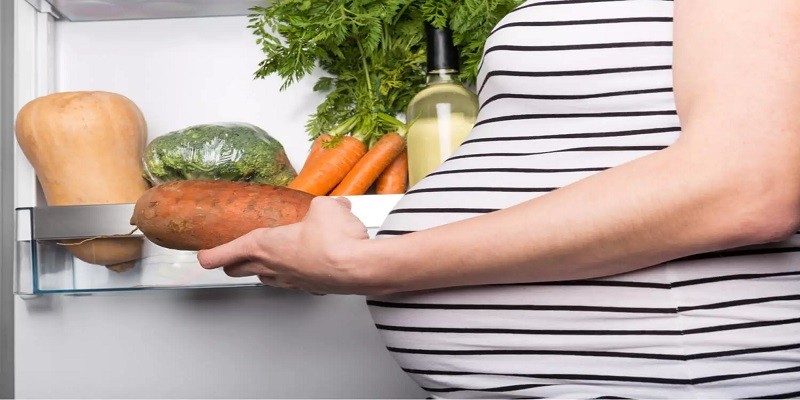Last Updated on July 25, 2024
Yes, you can eat tapioca while pregnant. Tapioca is generally safe for consumption during pregnancy when prepared properly and consumed in moderation. It provides carbohydrates and some nutrients, but it’s important to maintain a balanced diet. As with any food during pregnancy, it’s advisable to consult with your healthcare provider for personalized advice.
Pregnancy is a time when women are particularly conscious about their diet, ensuring they consume foods that are both safe and nutritious for themselves and their developing baby. Tapioca, a starch extracted from cassava root, is a popular ingredient in many cuisines and food products. For expectant mothers, questions often arise about the safety and benefits of consuming tapioca during pregnancy. This article explores the nutritional aspects of tapioca, its potential risks and benefits, and provides guidance on how to incorporate it safely into a pregnancy diet.
What is Tapioca?
Tapioca is a starch extracted from the cassava root, also known as manioc or yuca. It’s widely used in various forms, including pearls, flakes, and flour. Tapioca is popular in many cuisines worldwide, particularly in South America, Africa, and Asia. It’s known for its neutral flavor and thickening properties, making it a versatile ingredient in both sweet and savory dishes. Tapioca is gluten-free and is often used as a substitute for wheat flour in gluten-free baking. Its most recognizable form is perhaps tapioca pearls, commonly used in bubble tea and puddings.
Nutritional Value of Tapioca
| Nutritional Value | Details |
|---|---|
| Calories | Approximately 360 calories per 100g |
| Carbohydrates | About 88g per 100g |
| Protein | Minimal, less than 1g per 100g |
| Fat | Negligible |
| Fiber | About 0.9g per 100g |
| Vitamins | Small amounts of folate and some B vitamins |
| Minerals | Contains small amounts of iron, calcium, and potassium |
Risks of Eating Tapioca During Pregnancy
| Risks | Details |
|---|---|
| High Glycemic Index | Can cause rapid blood sugar spikes if consumed in large quantities |
| Low Nutrient Density | Primarily carbohydrates, lacking in essential nutrients needed during pregnancy |
| Choking Hazard | Tapioca pearls can pose a choking risk if not properly cooked or chewed |
| Allergic Reactions | Rare, but possible in some individuals |
| Contamination | If not properly processed, raw cassava can contain harmful compounds |
Safe Ways to Eating Tapioca During Pregnancy
Consuming tapioca safely during pregnancy involves moderation and proper preparation. Ensure that tapioca is fully cooked to eliminate any potentially harmful compounds. When using tapioca pearls, cook them thoroughly until they’re soft and translucent. Incorporate tapioca into a balanced diet, pairing it with nutrient-dense foods to compensate for its low nutritional profile. Avoid excessive consumption of tapioca-based desserts or drinks high in sugar. If using tapioca flour for baking, combine it with other nutrient-rich flour. Always practice food safety by purchasing tapioca products from reputable sources and storing them properly.
Alternatives to Tapioca During Pregnancy
| Alternatives | Precautions |
|---|---|
| Whole Grains (e.g., quinoa, brown rice) | Ensure proper cooking to avoid foodborne illnesses |
| Legumes (e.g., lentils, chickpeas) | Soak and cook thoroughly to improve digestibility |
| Sweet Potatoes | Wash thoroughly and cook well to remove any soil contaminants |
| Chia Seeds | Consume with adequate fluid to prevent choking |
| Oats | Choose plain varieties to avoid added sugars |
Expert Tips
- “Incorporate tapioca as part of a varied diet, ensuring it doesn’t replace more nutrient-dense foods essential for fetal development.”
- “If consuming tapioca pearls in beverages, be mindful of added sugars and opt for lower-sugar or sugar-free versions when possible.”
- “When using tapioca flour in baking, combine it with other nutrient-rich flours like almond or coconut flour to boost the nutritional value.”
FAQs
Is tapioca safe to eat during the first trimester?
Tapioca is generally safe to eat during the first trimester, as long as it’s properly prepared and consumed in moderation. However, the first trimester is crucial for fetal development, so focus on nutrient-dense foods. If you have concerns, consult your healthcare provider for personalized advice based on your individual health status and nutritional needs.
Can eating tapioca cause gestational diabetes?
Eating tapioca alone doesn’t cause gestational diabetes. However, its high glycemic index can lead to rapid blood sugar spikes if consumed in large quantities. Pregnant women should monitor their carbohydrate intake and balance it with protein and fiber. If you’re at risk for gestational diabetes, consult your doctor about including tapioca in your diet.
Are tapioca pearls in bubble tea safe during pregnancy?
Tapioca pearls in bubble tea can be safe during pregnancy if consumed occasionally and in moderation. However, be cautious of the high sugar content in many bubble tea drinks. Opt for lower-sugar versions or unsweetened options. Also, ensure the pearls are fully cooked to avoid any risk of contamination or digestive issues.
Can tapioca help with pregnancy-related constipation?
While tapioca contains some fiber, it’s not particularly high in this nutrient compared to other foods. For pregnancy-related constipation, it’s better to focus on high-fiber foods like fruits, vegetables, and whole grains. Staying hydrated and engaging in regular, safe physical activity can also help alleviate constipation during pregnancy.
Is cassava flour the same as tapioca flour for pregnancy nutrition?
Cassava flour and tapioca flour are both derived from the cassava root, but they’re not nutritionally identical. Cassava flour uses the whole root and contains more fiber and nutrients. Tapioca flour is more refined, consisting mainly of starch. Both can be consumed during pregnancy, but cassava flour may offer slightly more nutritional benefits.
Conclusion
Tapioca can be a safe and enjoyable part of a pregnant woman’s diet when consumed in moderation and prepared properly. While it provides energy in the form of carbohydrates, it’s important to remember that tapioca is not nutrient-dense. Pregnant women should focus on incorporating a variety of nutrient-rich foods to meet their increased nutritional needs. As with any dietary changes during pregnancy, it’s always best to consult with a healthcare provider or a registered dietitian for personalized advice. By making informed choices and maintaining a balanced diet, expectant mothers can safely enjoy tapioca while ensuring optimal nutrition for themselves and their developing baby.







